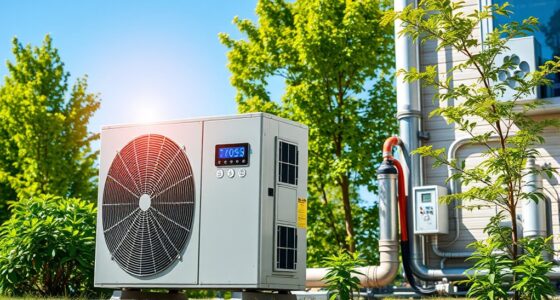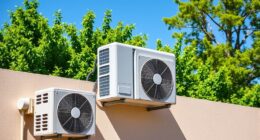Choosing the perfect heat pump for your HVAC system can feel like a daunting task. But don’t fret! In this article, we will guide you through the selection process, providing in-depth and precise details to help you make a knowledgeable decision.
From understanding heat pumps to considering energy efficiency ratings and certifications, we’ll cover it all.
So, let’s dive in and find the ideal heat pump that will keep your home comfortable all year round.
Key Takeaways
- Heat pumps transfer heat from one area to another and provide both heating and cooling.
- There are two types of heat pumps for HVAC systems: air source heat pumps and geothermal heat pumps.
- Geothermal heat pumps have higher efficiency and lower operating costs, while air source heat pumps are more affordable but less efficient in extreme temperatures.
- Proper sizing and professional installation are crucial for optimal performance and energy efficiency.
Understanding Heat Pumps
We frequently encounter heat pumps in our HVAC systems, so it’s important to understand how they work.
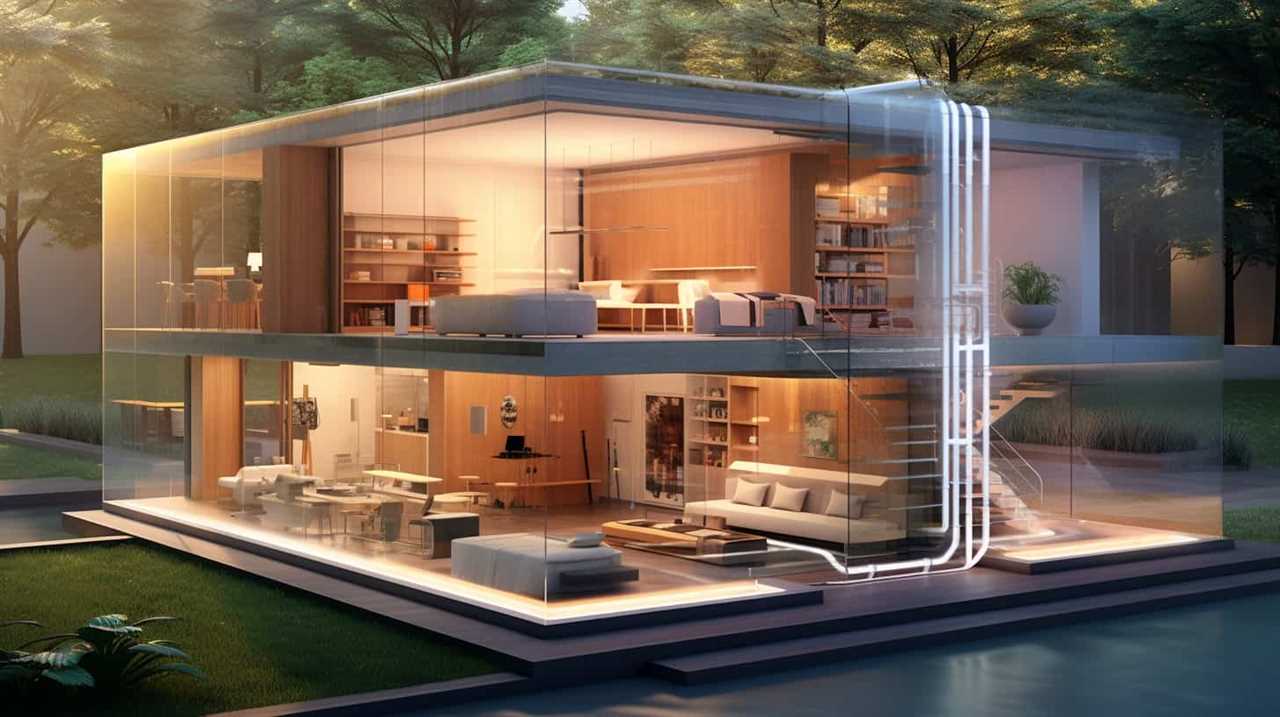
Heat pumps are a crucial component of heating and cooling systems, responsible for transferring heat from one area to another. The operation of a heat pump involves three main processes: the evaporation of a refrigerant, compression of the vapor, and condensation to release heat.
During the heating cycle, the heat pump absorbs heat from the outside air or ground and transfers it indoors. In the cooling cycle, the process is reversed, with heat being extracted from indoors and released outdoors.
The benefits of heat pumps include energy efficiency, as they utilize ambient heat rather than generating it, and their versatility in providing both heating and cooling.
Understanding heat pump operation is essential for maximizing their efficiency and reaping the benefits they offer.

Types of Heat Pumps for HVAC Systems
When it comes to heat pumps for HVAC systems, there are two main types to consider: air source and geothermal.
Air source heat pumps extract heat from the outside air and transfer it indoors, while geothermal heat pumps use the stable temperature of the ground or a body of water to heat or cool a space.
Efficiency and cost are important factors to consider, as air source heat pumps are generally more affordable to install but may be less efficient in extreme temperatures.
Additionally, the size and installation requirements of each type of heat pump should be taken into account to ensure a proper fit for your HVAC system.

Air Source Vs. Geothermal
There are two main types of heat pumps for HVAC systems: air source and geothermal. Each type has its own advantages and disadvantages. Let’s take a closer look at them:
Geothermal advantages:
Higher efficiency: Geothermal heat pumps can achieve higher efficiency levels compared to air source heat pumps, as they rely on stable ground temperatures.
Lower operating costs: Geothermal systems can significantly reduce energy consumption, leading to lower utility bills.
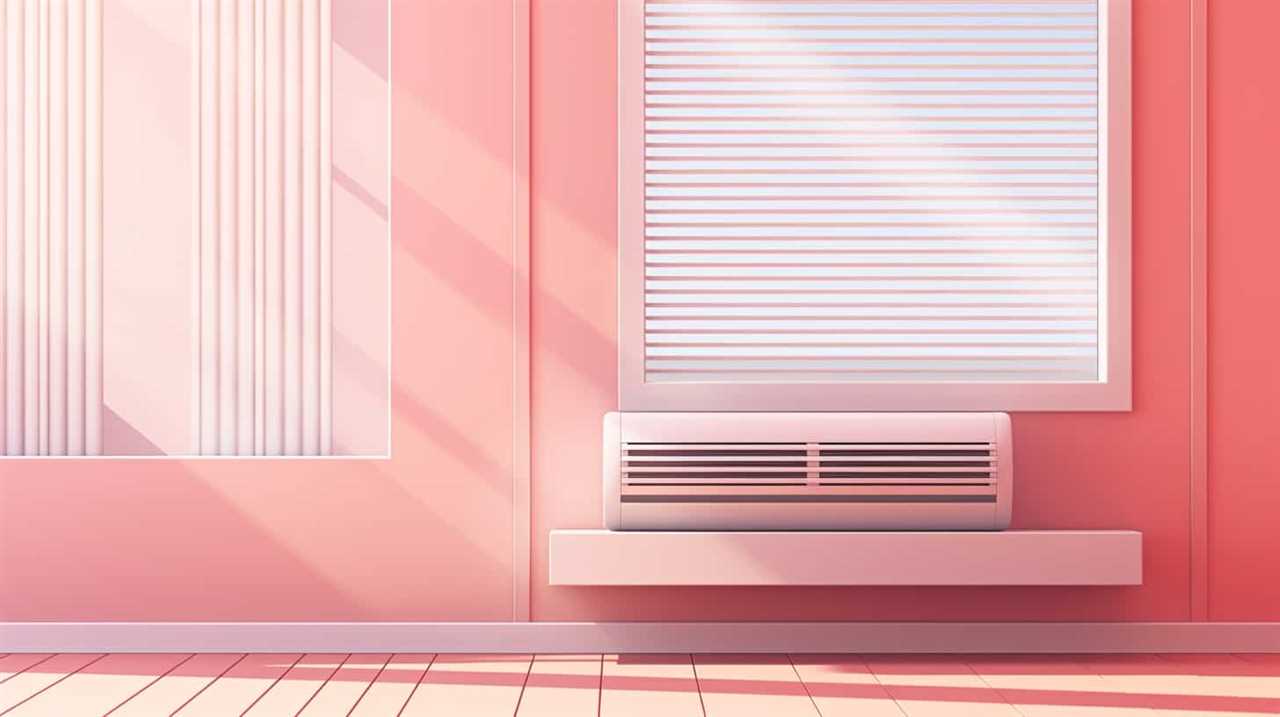
Environmentally friendly: Geothermal heat pumps produce fewer greenhouse gas emissions, helping to reduce the carbon footprint.
Air source disadvantages:
Lower efficiency in extreme temperatures: Air source heat pumps may struggle to maintain desired temperatures in extremely hot or cold climates.
Noise levels: Air source systems can be noisier compared to their geothermal counterparts.

Limited lifespan: Air source heat pumps tend to have a shorter lifespan compared to geothermal systems.
Considering these factors, it’s important to carefully evaluate your specific needs and climate conditions when choosing between air source and geothermal heat pumps for your HVAC system.
Efficiency and Cost
Both the efficiency and cost of heat pumps for HVAC systems can vary depending on the type of heat pump chosen. When it comes to cost effectiveness, it’s important to consider the initial investment as well as the long-term energy savings.
Air source heat pumps are generally more affordable to install compared to geothermal heat pumps. However, geothermal heat pumps offer higher efficiency and can lead to significant energy savings over time. They use the stable temperature of the ground to heat and cool the house, resulting in reduced energy consumption.
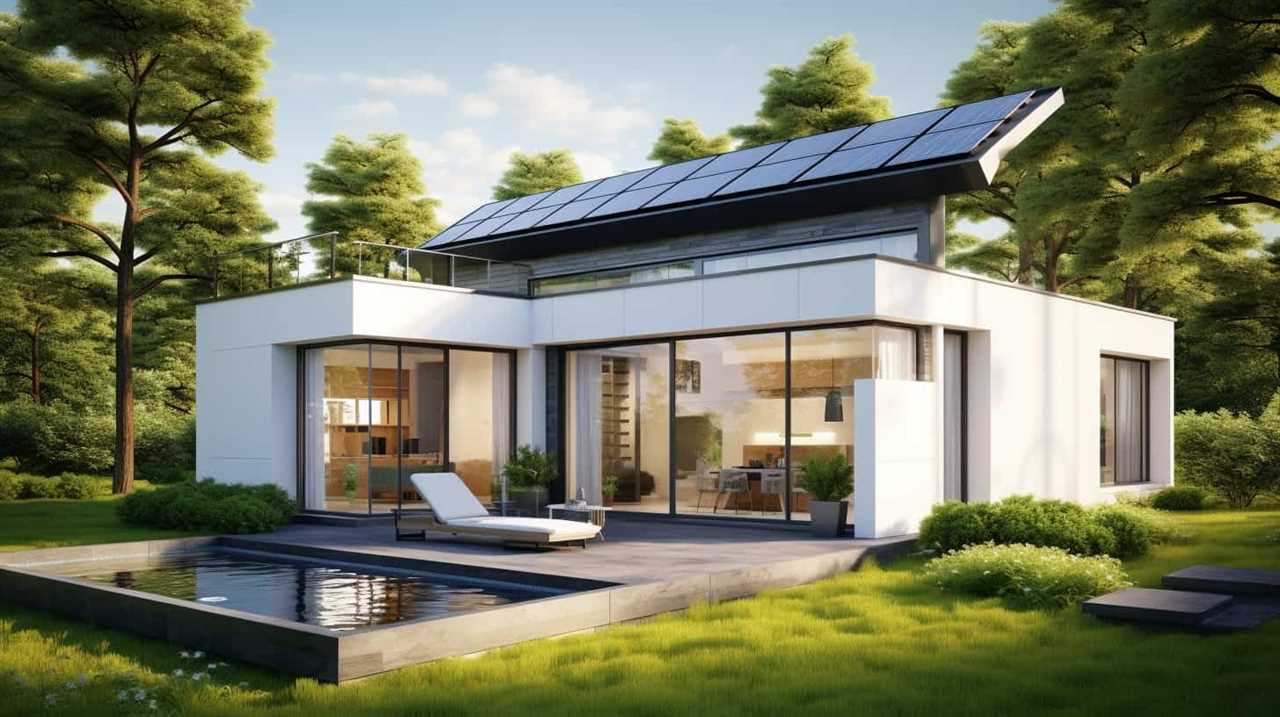
While the upfront cost may be higher for geothermal heat pumps, the long-term energy savings make them a more cost-effective choice. It’s important to carefully evaluate the efficiency and cost of different heat pump options to make an informed decision for your HVAC system.
Size and Installation
We will now discuss two types of heat pumps for HVAC systems: air source heat pumps and geothermal heat pumps.
When it comes to the installation process of heat pumps, proper sizing is crucial to ensure optimal performance and energy efficiency. Here are three key factors to consider:
Load Calculation: A professional HVAC contractor will perform a load calculation to determine the heating and cooling requirements of your home. This calculation considers factors such as square footage, insulation, windows, and climate.

Equipment Sizing: Based on the load calculation, the appropriate size of the heat pump is determined. It’s essential to choose the right size to avoid overworking the system or experiencing insufficient heating or cooling.
Ductwork Evaluation: The installation process also involves evaluating the existing ductwork. Properly sized and sealed ducts are necessary to ensure efficient airflow and minimize energy loss.
Sizing Your Heat Pump Correctly
When determining the correct size for our heat pump, it’s crucial to accurately assess our heating and cooling needs. Correct sizing ensures that the heat pump can effectively provide the desired temperature control in our space.
A professional installation is necessary to ensure the heat pump is correctly sized and installed. An undersized heat pump will struggle to meet our heating and cooling demands, resulting in inefficient operation and increased energy consumption. On the other hand, an oversized heat pump may cycle on and off frequently, leading to temperature fluctuations and unnecessary wear and tear on the system.
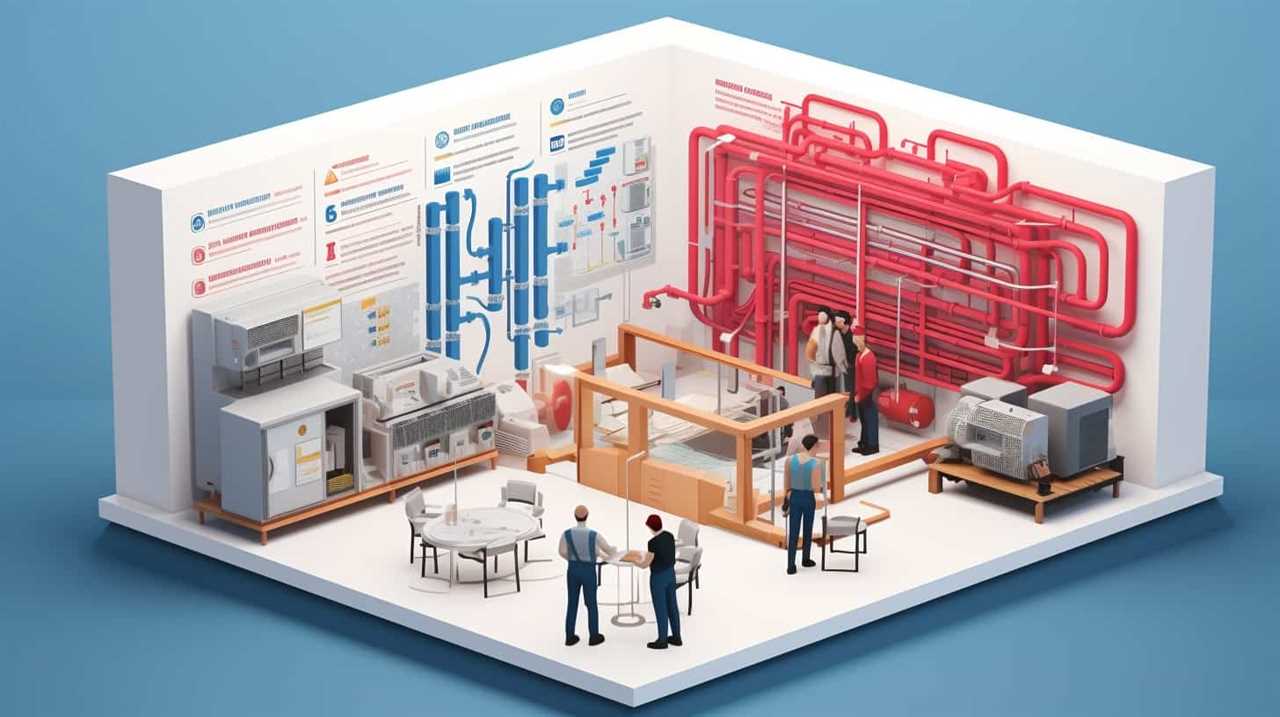
Energy Efficiency Ratings and Certifications
The energy efficiency ratings and certifications of a heat pump are important factors to consider when choosing the perfect HVAC system. When it comes to energy efficiency standards, there are a few key certifications and ratings to look out for:
ENERGY STAR: This certification indicates that the heat pump meets or exceeds strict energy efficiency guidelines set by the Environmental Protection Agency. ENERGY STAR certified heat pumps can help reduce energy consumption and lower utility bills.
SEER: The Seasonal Energy Efficiency Ratio measures the cooling efficiency of the heat pump. The higher the SEER rating, the more energy efficient the system is.
HSPF: The Heating Seasonal Performance Factor measures the heating efficiency of the heat pump. A higher HSPF rating means greater energy efficiency during the heating season.

Considering these ratings and certifications is crucial as they not only impact your energy bills but also have an environmental impact. By choosing a heat pump with high energy efficiency, you can minimize your carbon footprint and contribute to a greener future.
Now let’s delve into considerations for climate and region to further guide your decision-making process.
Considerations for Climate and Region
To optimize the performance of your HVAC system, it’s important to consider the climate and region when choosing the perfect heat pump.
Climate considerations and regional factors play a crucial role in determining the suitability of a heat pump for your specific location. Different climates require different heat pump capacities and features. For instance, in colder regions, a heat pump with a higher heating capacity is necessary to provide adequate warmth during winter months. On the other hand, in warmer climates, a heat pump with a higher cooling capacity is more important.
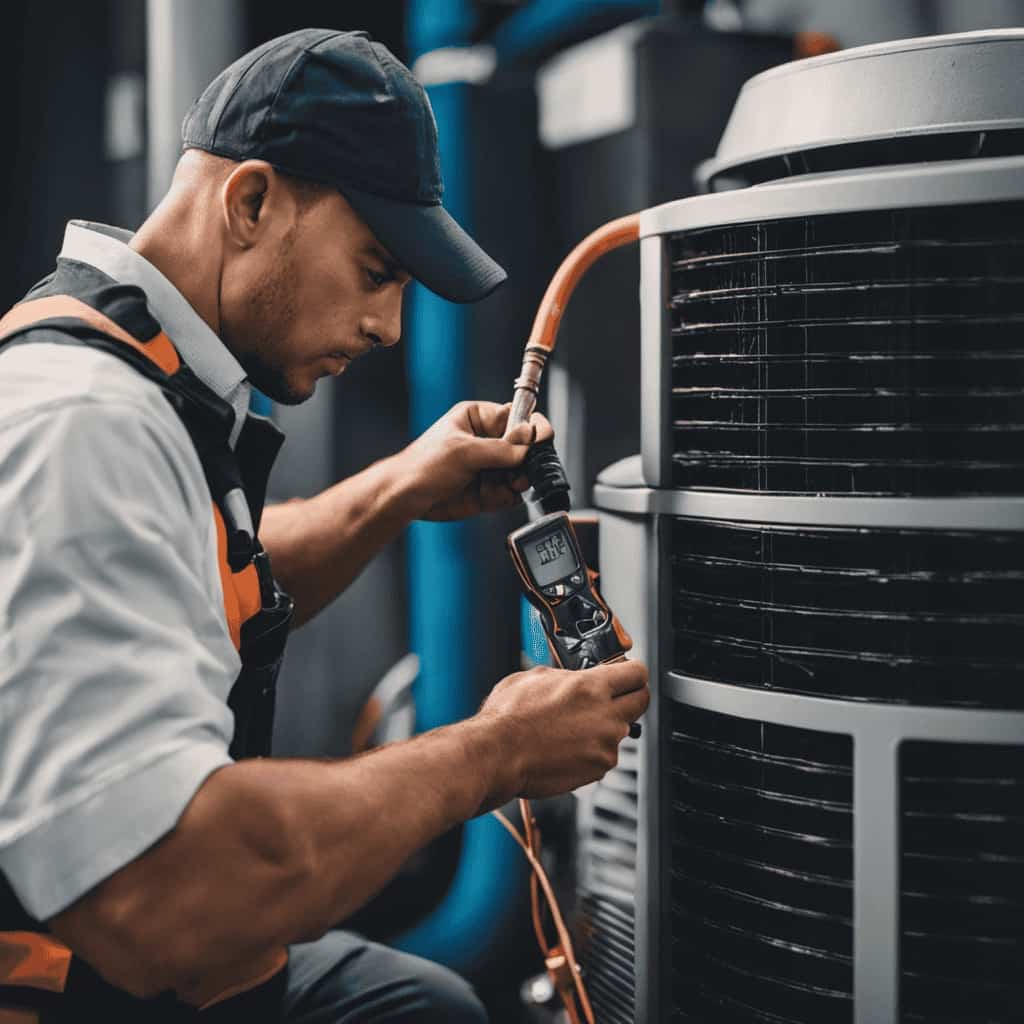
Additionally, regional factors such as humidity levels and air quality should also be taken into account. A heat pump that can effectively handle high humidity or filter out pollutants may be more appropriate for certain regions.
Choosing the Right Features and Options
When it comes to choosing the right features and options for your heat pump, there are a few must-have features that you should consider.
These features include variable-speed compressors, smart technology integration, and energy efficiency ratings.
Additionally, heat pumps offer a range of customization options, such as different sizes, installation configurations, and heating and cooling capacities, allowing you to tailor your system to meet your specific needs.

Must-Have Heat Pump Features
We should consider the cost-effectiveness of energy-saving features when choosing the perfect heat pump for our HVAC system. Heat pump technology has come a long way, and there are several must-have features that can enhance energy efficiency and save us money in the long run. Here are three key features to look for:
Variable-speed compressor: This feature allows the heat pump to adjust its speed and output based on the heating or cooling demands of the space. It ensures that the system operates at peak efficiency and minimizes energy consumption.
Smart thermostat compatibility: By integrating the heat pump with a smart thermostat, we can have better control over our HVAC system. Smart thermostats can learn our preferences, adjust temperature settings automatically, and optimize energy usage.
Dual fuel capability: Heat pumps with dual fuel capability can switch between electric heating and a gas furnace, depending on the outside temperature. This feature ensures that we always have the most cost-effective heating method in use.

Considering these energy-saving features when selecting a heat pump will help us maximize efficiency and reduce energy costs.
Customization Options Available
But, before we can choose the right features and options for our heat pump, we need to understand the customization options available to us.
Heat pumps come with a variety of customization options that allow us to personalize our settings and optimize the performance of our HVAC system.
One important customization option is the ability to set different temperature zones throughout our home. This allows us to control the temperature in specific areas, ensuring maximum comfort and energy efficiency.
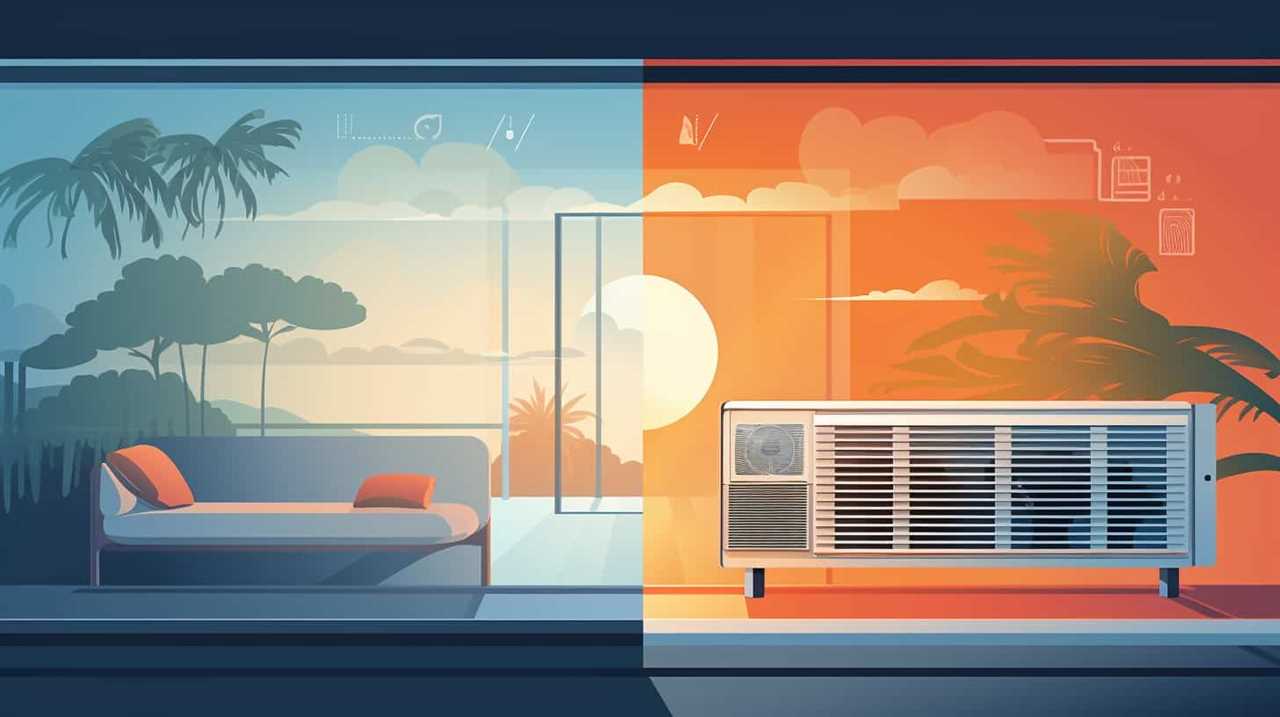
Another useful feature is the ability to adjust fan speed and airflow, which can help regulate air distribution and reduce noise levels.
Additionally, some heat pumps offer advanced controls that allow us to program our system according to our schedule, ensuring that we’ve the perfect temperature when we need it.
Installation and Maintenance Considerations
Our team recommends regular maintenance and professional installation for optimal performance and longevity of your heat pump. Here are some installation tips to consider:
- Hire a professional: A qualified technician will ensure proper installation, preventing potential issues and maximizing efficiency.
- Location matters: Choose a suitable location for your heat pump, away from obstructions and noise-sensitive areas.
- Size matters too: Ensure the heat pump is the right size for your home to ensure efficient operation.
Now, let’s discuss the maintenance schedule:
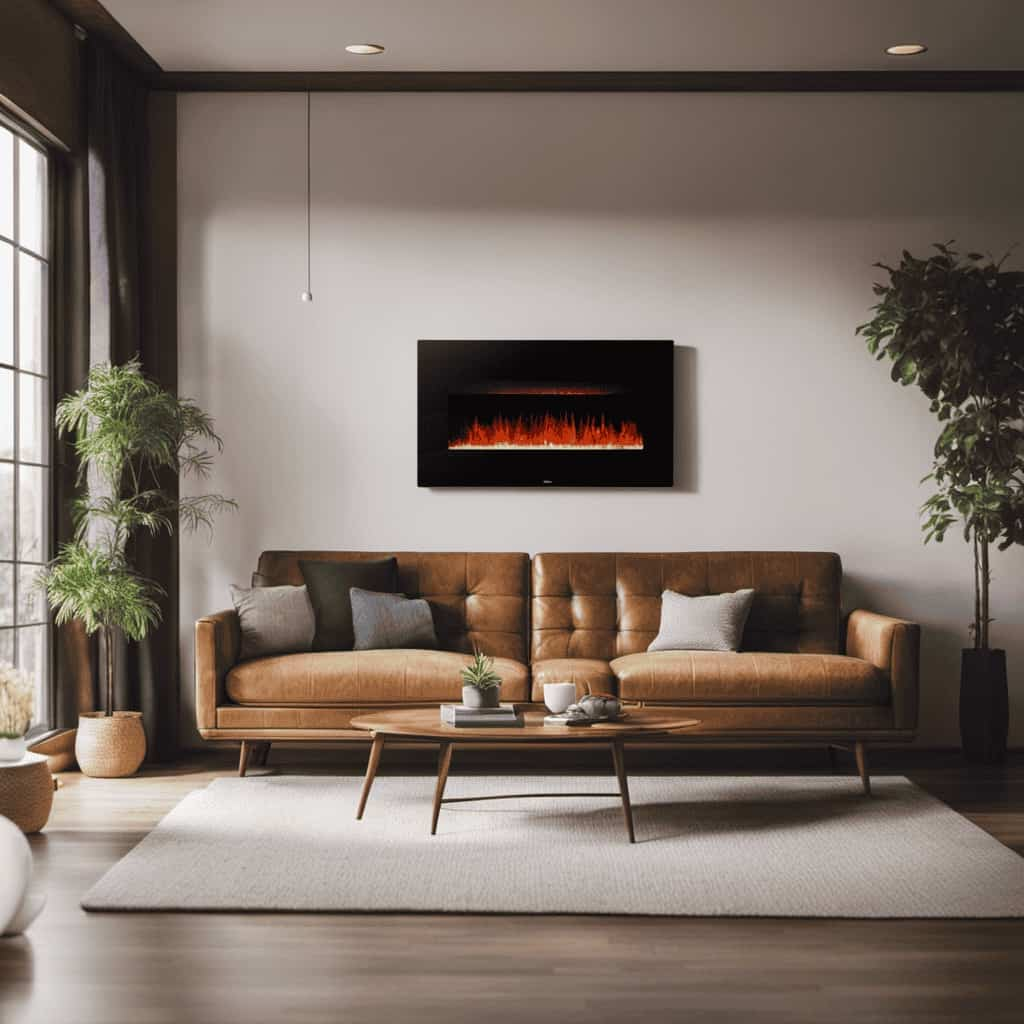
- Regular filter cleaning: Clean or replace the air filters every one to three months to maintain airflow and prevent dirt buildup.
- Check refrigerant levels: Low refrigerant levels can reduce heat pump efficiency. Schedule regular inspections to ensure optimal levels.
- Annual professional maintenance: Have a technician inspect and service your heat pump annually to identify any potential problems and ensure proper functioning.
Following these installation and maintenance tips can help you get the most out of your heat pump and extend its lifespan.
Comparing Brands and Prices
Let’s compare the brands and prices of heat pumps to find the perfect option for your HVAC system.
When it comes to heat pumps, brand reputation is an important factor to consider. Established and reputable brands often offer higher quality products and better customer support. It’s worth investing in a heat pump from a trusted brand to ensure its durability and reliability.
Additionally, comparing prices is crucial in finding the best deal. While it’s tempting to go for the cheapest option, it’s essential to consider energy savings as well. A slightly more expensive heat pump with higher energy efficiency can save you money in the long run through reduced energy consumption.
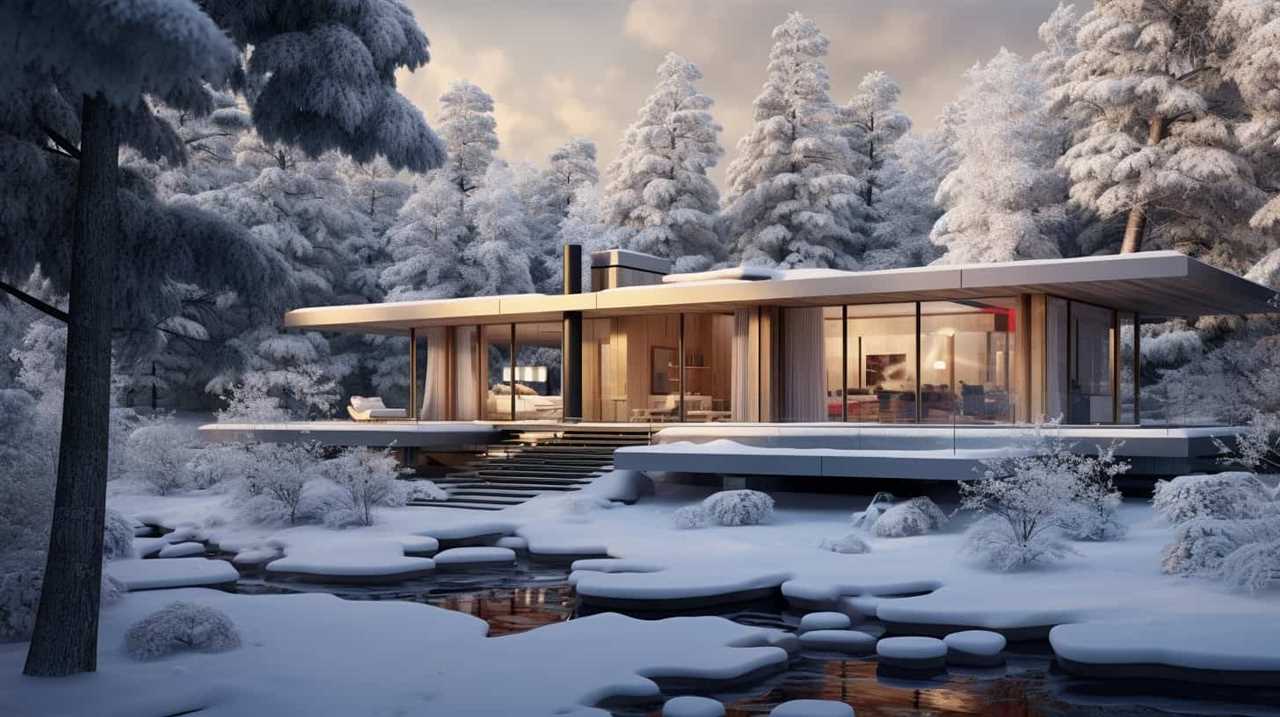
Therefore, it’s recommended to strike a balance between brand reputation and energy savings when comparing prices.
Frequently Asked Questions
How Long Does a Heat Pump Typically Last Before Needing to Be Replaced?
Heat pumps typically last around 15 to 20 years before needing replacement. Regular heat pump maintenance is crucial to prolonging its lifespan. Signs of a failing heat pump include decreased efficiency, strange noises, and frequent breakdowns.
Are There Any Tax Credits or Incentives Available for Purchasing a Heat Pump?
Yes, there are tax credits and incentives available for purchasing a heat pump. These include tax credit availability and energy efficiency incentives. They can help offset the cost of purchasing and installing a heat pump.
Can a Heat Pump Be Used for Both Heating and Cooling Purposes?
Yes, a heat pump can be used for both heating and cooling. It’s like having the best of both worlds in your home. With a DIY installation, you can enjoy the advantages of heat pumps for homes.
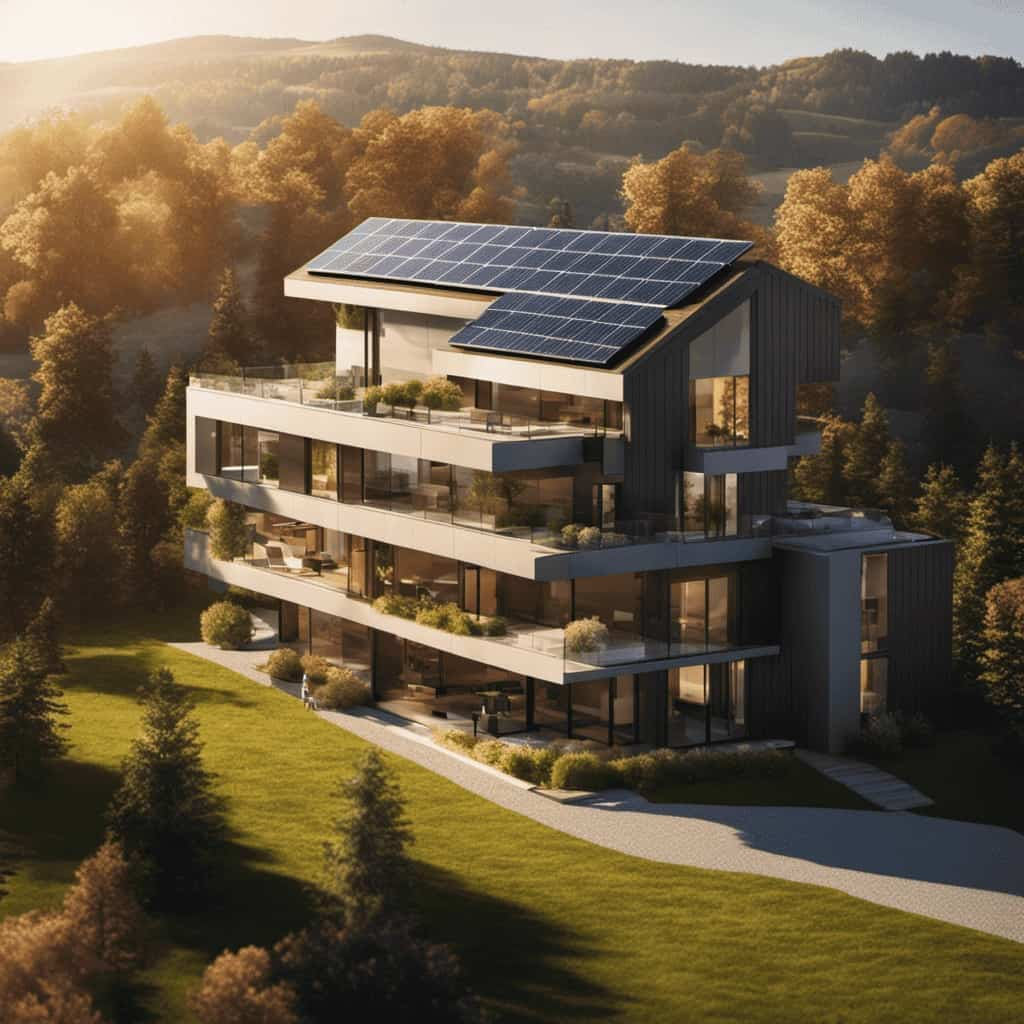
What Is the Average Cost of Installing a Heat Pump in a Home?
The average cost of installing a heat pump in a home varies depending on various factors such as the size of the unit and the complexity of the installation. The duration of the installation can also vary accordingly.
Is It Necessary to Have a Professional HVAC Technician Install and Maintain a Heat Pump, or Can It Be Done as a DIY Project?
We found that DIY heat pump installation can be tempting, but it’s wise to have a professional HVAC technician handle it. Common heat pump maintenance, like checking refrigerant levels, requires specialized knowledge and equipment.
What Factors Should I Consider When Selecting a Heat Pump for My HVAC System?
When selecting an ideal heat pump for hvac systems, certain factors should be considered. First, calculate the size of your space to determine the heating and cooling requirements. Energy efficiency is crucial, so look for a heat pump with a high SEER (Seasonal Energy Efficiency Ratio) rating. Consider the noise level, as some heat pumps can be noisy. Lastly, ensure the heat pump is compatible with your current HVAC system for seamless integration.
Conclusion
In conclusion, choosing the perfect heat pump for your HVAC system requires careful consideration of various factors such as heat pump types, sizing, energy efficiency ratings, climate, features, and installation.
One interesting statistic to note is that according to a study by the U.S. Department of Energy, properly sized and installed heat pumps can reduce energy consumption by up to 50% compared to traditional heating and cooling systems.
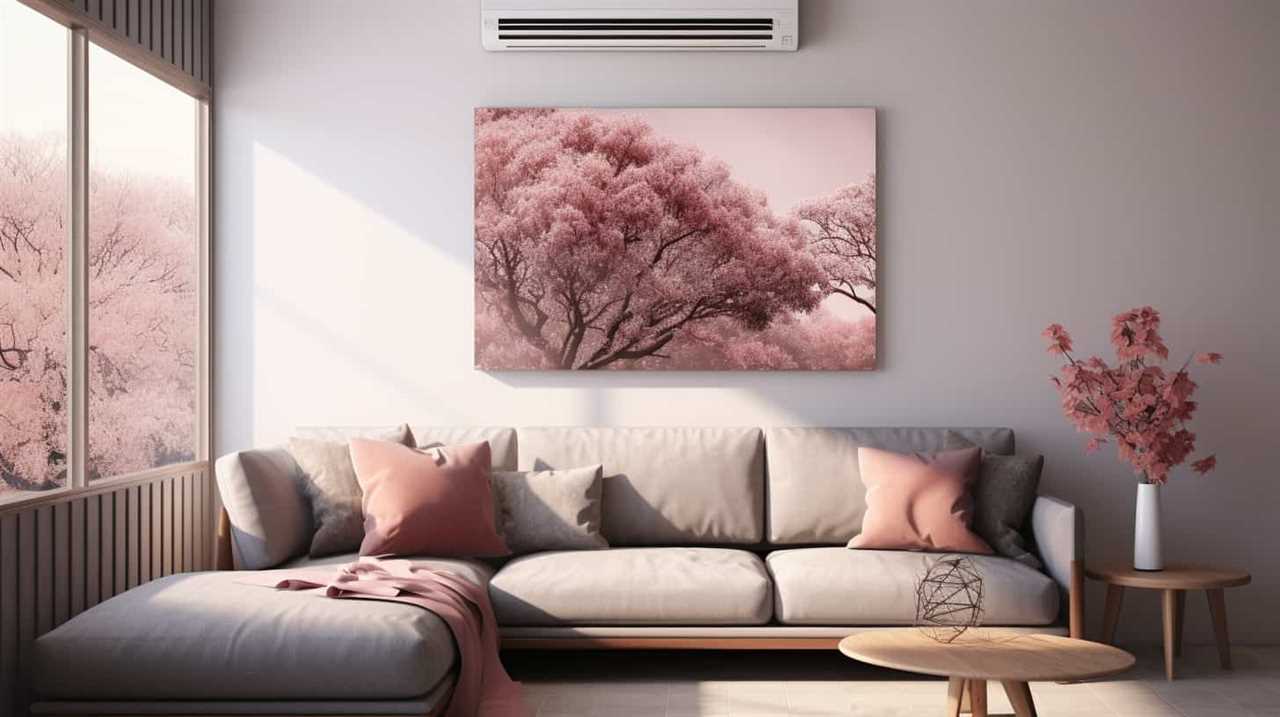
Make an informed decision to ensure optimal comfort and energy savings in your home.





